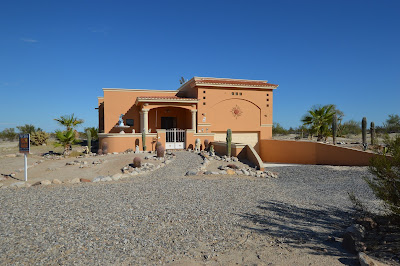No More Fideicomiso???
We have received a huge amount of interest regarding the “cancellation” of the Fideicomiso. This is certainly good news, but it may be some time before everybody can go rush out and extinguish their current fideicomisos.
Here is what we’ve heard:
Once the Senate approves the bill, which some believe has occurred, it goes to the president for signature. But even after the presidential signature it is not law yet. The signed document must be published in the Diario Nacional (like the Congressional Record in the US). People shouldn’t go running to the bank and demand that their fideicomiso be cancelled because it may not be that easy or in your best interest.
The Senate and others need to decide how the Calvo clause will work if foreigners will now have Escrituras (Mexican fee simple titles). The Calvo Clause in Mexico is part of the fideicomiso and when the new owner signs a fideicomiso, the owner agrees to act as a Mexican national and will not try to invoke the laws of their native country.
There is also the Investment clause. This clause states that if the land larger than 2,000 square meters you must develop it within 24 months and spend at least $250,000 USD on the improvements. Keep in mind that the investment figure goes up as the size of the property increases. {This may affect owners who purchased large lots over 2,000 sq. mts. or 21,527.8 sq. ft.}
Then there is the Secretary of Foreign Relations known as the SRE in Mexico. When transactions for buyers in Guadalajara, and other parts of Mexico that are not in the restricted zone (i.e. areas where fideicomisos were never required)there was still a permit issued by the SRE. These take time and cost money. Escrituras are titles that Mexican citizens get when they buy land. There is no SRE permit, no Calvo or Investment Clause in the existing Escrituras. How will this work for foreigners? This still has to be figured out!
The Final Steps – State Approval
As has been pointed out in several U.S. media sources, such as Washington Post, since this bill is proposing a modification (or “reform” as Mexicans say) to the Constitution, after receiving approval of the Senate, it must also be approved by the legislatures of the majority of the states.
The state process is simpler with only one legislative house(the state deputies, or “regidores” as they’re called.) In this case they will simply vote to approve or disapprove, without the possibility of making any changes.
There are 31 states and the Federal District, which means it would still need the approval of 16 state legislatures.
We believe not needing a fideicomiso will save a buyer approximately $2,500 dollars in closing costs, and they will not have to pay the annual Trust maintenance fee the banks charge, approximately $400 to $600 USD. And closings will “technically” speed up since the banks will not be involved in the closing. It will be awhile before we know how the process of cancelling a trust will work.
But here are two things to consider:
1. The process could be slow. The fiduciary will amend the law before finalization.
2. There will be fees involved. The bank charges a cancellation fee, owners must sign in front of a Notario, and a new Escritura (title) must be registered, equaling more fees.
Another thing to consider is that without the fideicomiso owners must have a Mexican will because in case of death the property will go through probate and probate can take up to a year.
We suggest that if your house is on the market don’t make any changes, the process will be new and untested; therefore, a lot of adjusting will take place. Wait until a new buyer comes along, then the seller will just be involved with a standard extinguishing of the trust with the buyer paying this fee.
If an owner is not selling, the owners have to decide if it is worth the time and money to extinguish the trust. For the sake of $400 to $600 per year it may make more sense not to cancel your Fideicomiso, especially if you plan on selling within the next 5 to 10 years.
We spoke with 2 notarios in Mexicali last Friday and asked them for any updates on this matter. We were told that they hadn’t heard anything and that it was business as usual. Of course it could have passed the Senate during the week but there are still several steps to be taken before we can all really celebrate the changes.

